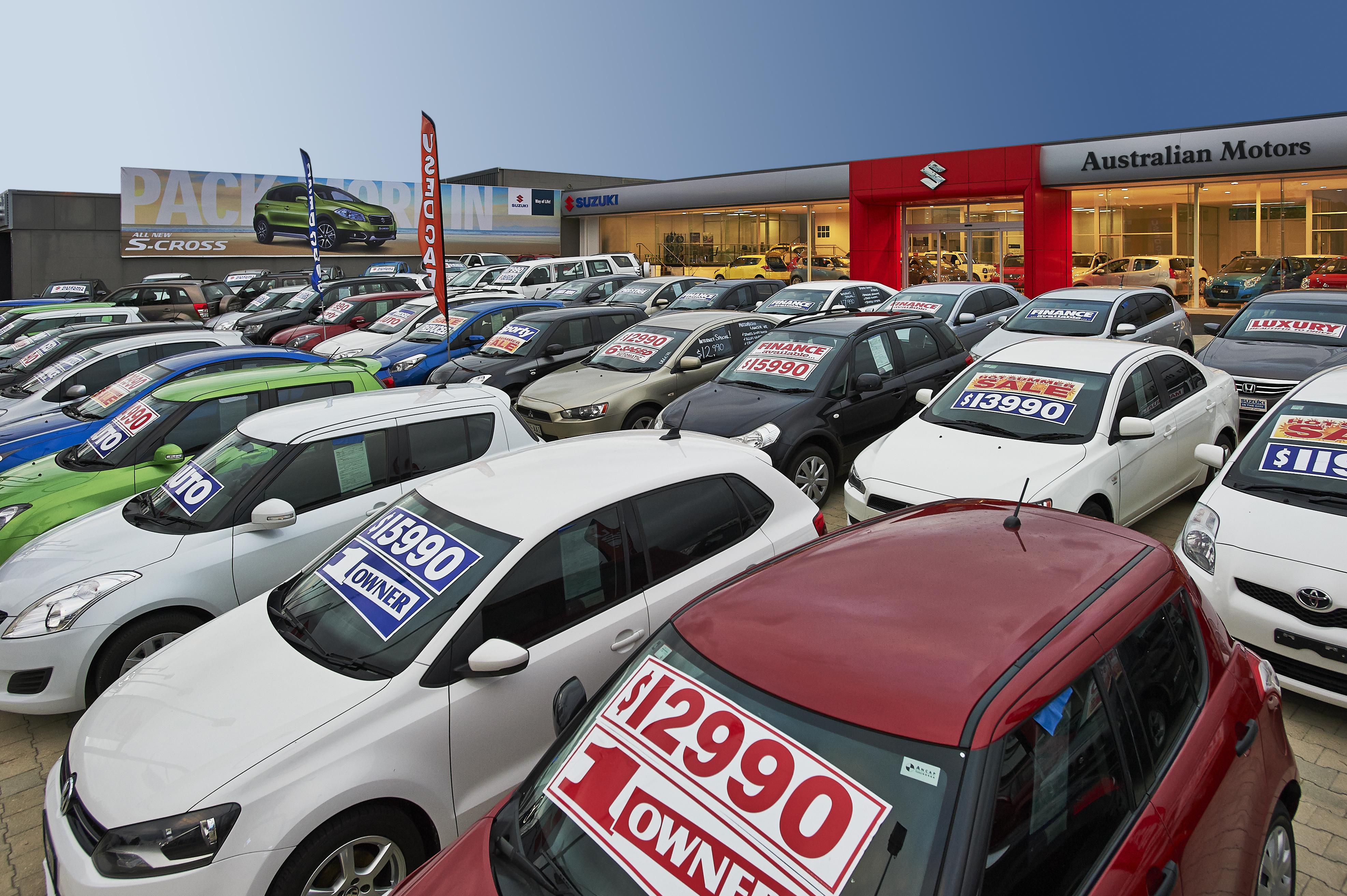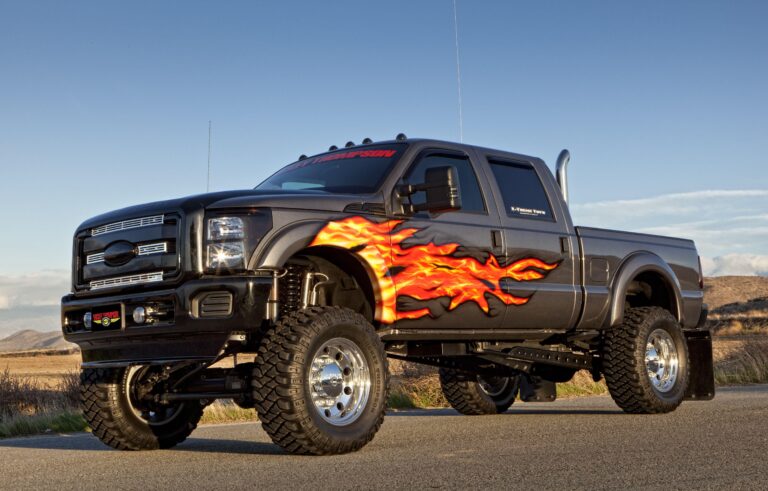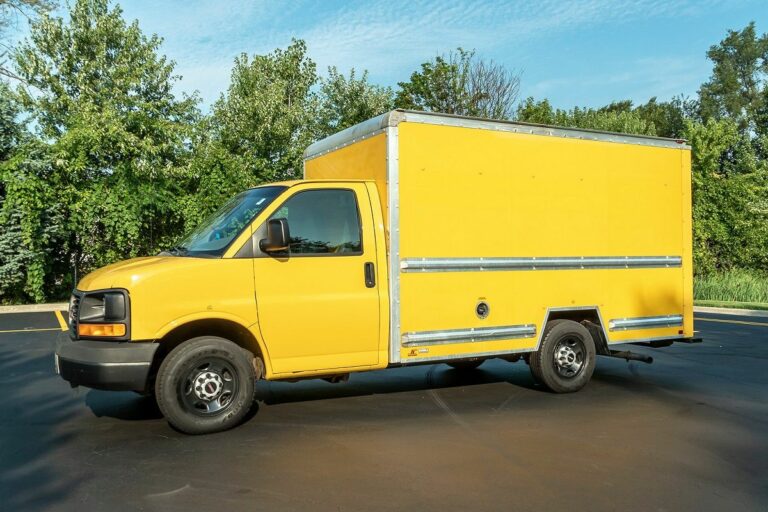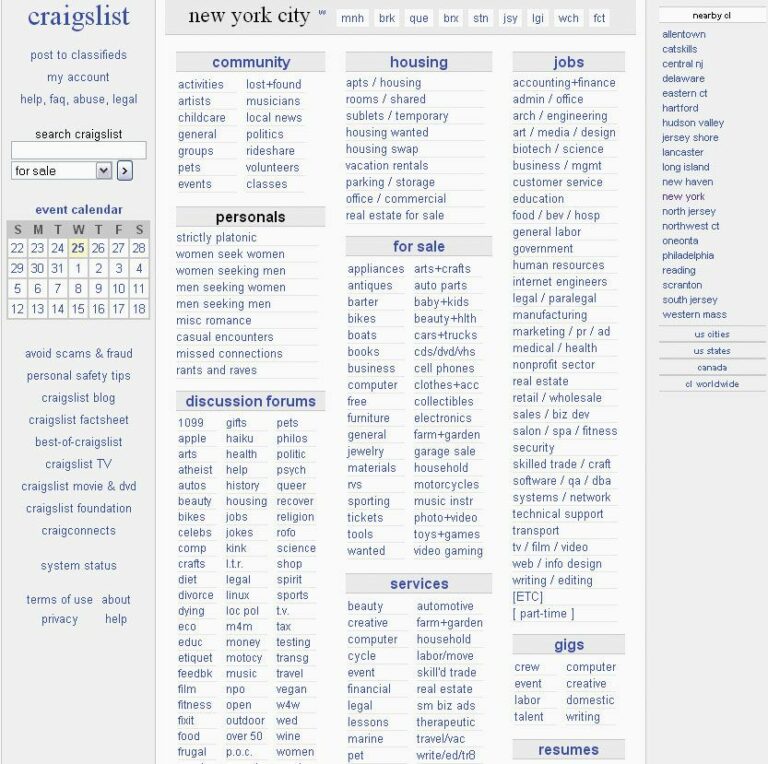Used 2500 Trucks For Sale In Texas: Your Ultimate Buyer’s Guide
Used 2500 Trucks For Sale In Texas: Your Ultimate Buyer’s Guide cars.truckstrend.com
Texas, the land of vast open spaces, demanding industries, and a deep-rooted appreciation for powerful machinery, is undeniably truck country. Among the myriad of pickups traversing its highways and byways, the 2500-series truck holds a special place. These are the heavy-duty workhorses, often referred to as ¾-ton trucks, designed to handle serious towing, substantial payloads, and the rugged demands of both commercial and personal use. While new 2500 trucks come with a hefty price tag, the market for used 2500 trucks for sale in Texas offers a compelling alternative for those seeking power and capability without the new-car depreciation hit.
This comprehensive guide will navigate you through the landscape of used 2500 trucks in Texas, providing insights into why they are a smart investment, what to look for, where to find them, and how to ensure you drive away with the right truck for your needs.
Used 2500 Trucks For Sale In Texas: Your Ultimate Buyer’s Guide
Why Choose a Used 2500 Truck for Texas?
Opting for a used 2500 truck, especially in Texas, comes with a multitude of advantages that make it a highly attractive proposition for a diverse range of buyers.
Benefits: The Power of Prudence
- Significant Cost Savings: The primary appeal of a used truck is its price. New vehicles experience their steepest depreciation in the first few years. By buying used, you let the first owner absorb this initial loss, allowing you to acquire a highly capable truck at a fraction of the original cost. This frees up capital for maintenance, upgrades, or other investments.
- Unyielding Capability: A 2500 truck isn’t just for show. It’s built for demanding tasks. Whether you’re hauling a large livestock trailer across the ranch, towing an RV for a weekend getaway, transporting heavy equipment to a job site, or navigating rough terrain, a 2500 series truck offers the robust towing and payload capacities that lighter trucks simply can’t match.
- Proven Durability and Longevity: These trucks are engineered for heavy-duty use, meaning their components are typically more robust than those found in half-ton pickups. With proper maintenance, a well-cared-for used 2500 truck can reliably serve its owner for hundreds of thousands of miles, making it a long-term asset.
- Abundant Availability in Texas: Texas’s economy, driven by agriculture, oil and gas, construction, and recreation, creates an enormous demand for heavy-duty trucks. This translates into a vast and diverse used 2500 truck market, offering a wider selection of makes, models, years, and configurations than almost anywhere else in the country.
- Established Aftermarket: Due to their popularity, 2500 trucks benefit from a massive aftermarket for parts, accessories, and upgrades. This means repairs are often easier and more affordable, and customization options are virtually limitless.

Challenges & Considerations: The Road Less Traveled
While the benefits are clear, it’s crucial to approach a used truck purchase with caution.
- Unknown History: A used truck’s past can be murky. Without proper investigation, you might inherit hidden mechanical issues, undisclosed accident damage, or a history of neglect.
- Wear and Tear: Heavy-duty trucks, by their nature, are often subjected to hard work. This can result in accelerated wear on components like the transmission, suspension, brakes, and engine, especially if maintenance schedules were ignored.
- Potentially Higher Maintenance for Older Models: While robust, older trucks might require more frequent and potentially more expensive repairs as parts wear out. Diesel engines, while incredibly durable, can have costly service intervals or part replacements (e.g., injectors, turbochargers).
Key Considerations When Buying a Used 2500 Truck
Making an informed decision requires careful evaluation of several critical factors.
1. Budgeting Beyond the Purchase Price
Your budget should encompass more than just the sticker price. Factor in:
- Insurance: Heavy-duty trucks can have higher insurance premiums.
- Maintenance & Repairs: Set aside a contingency fund for unexpected repairs or routine heavy-duty maintenance (e.g., diesel fuel filters, larger tires, brake jobs).
- Fuel Costs: Both gasoline and diesel 2500 trucks consume a significant amount of fuel, especially under load. Diesel fuel is often more expensive per gallon.
- Registration & Taxes: Don’t forget state and local fees.
2. Intended Use: Matching the Truck to Your Task
Clearly define what you need the truck for:
- Towing Capacity: What’s the maximum weight of your trailer (RV, boat, horse trailer, work equipment)? Will you need a gooseneck or 5th-wheel hitch?
- Payload Capacity: How much weight will you regularly carry in the bed (tools, materials, passengers)?
- Daily Driver vs. Workhorse: Will this be your primary vehicle, or strictly for heavy-duty tasks?
- Terrain: Do you need 4WD for off-road capability, muddy job sites, or just occasional inclement weather?
3. Mileage and Age: The Sweet Spot
There’s a delicate balance between age, mileage, and price.
- High Mileage, Newer Truck: Could indicate extensive highway driving, which is often easier on a truck than stop-and-go city driving.
- Low Mileage, Older Truck: Might mean it sat unused for long periods, potentially leading to issues with seals, hoses, and fluids, or it was primarily used for short trips.
- Sweet Spot: Often, trucks between 3-7 years old with 60,000-120,000 miles offer the best value, having absorbed significant depreciation but still having plenty of life left.
4. Engine Type: Gasoline vs. Diesel
This is one of the most crucial decisions for a 2500 truck:
- Gasoline Engines (e.g., Ford 6.2L/7.3L, Ram 6.4L Hemi, GM 6.6L Gas):
- Pros: Lower upfront cost, simpler maintenance, cheaper parts, better for short trips, less sensitive to cold weather.
- Cons: Lower towing capacity (generally), worse fuel economy under load, less torque.
- Diesel Engines (e.g., Ford Power Stroke, Ram Cummins, GM Duramax):
- Pros: Superior towing and hauling capacity due to immense torque, better fuel economy (especially when towing), legendary durability (if maintained), higher resale value.
- Cons: Higher upfront cost, more expensive maintenance (fuel filters, DEF), potentially costly repairs (injectors, turbo, emissions systems), louder operation, can be finicky in extreme cold.
For heavy towing in Texas, diesel is often the preferred choice due to its efficiency and power under load.
5. Drivetrain: 2WD vs. 4WD
- 2WD (Two-Wheel Drive): Lighter, slightly better fuel economy, lower maintenance costs, often cheaper to buy. Sufficient for highway driving and light-duty work on paved surfaces.
- 4WD (Four-Wheel Drive): Essential for off-road trails, muddy job sites, or areas prone to flooding or ice. Adds weight, complexity, and expense. Given Texas’s diverse terrain and potential for heavy rains, 4WD is a popular and often practical choice.
6. Vehicle History Report (VHR): Your Due Diligence
Always obtain a CarFax or AutoCheck report. This report can reveal:
- Accident history and damage.
- Service records (oil changes, major repairs).
- Number of previous owners.
- Odometer discrepancies.
- Title issues (salvage, flood, rebuilt).
- Lien status.
7. Pre-Purchase Inspection (PPI): Non-Negotiable
Even with a clean VHR, a professional pre-purchase inspection by an independent, trusted mechanic is paramount. They will identify:
- Underlying mechanical issues (engine, transmission, brakes, suspension).
- Frame damage or rust.
- Fluid leaks.
- Tire condition.
- Wear and tear on critical components.
This small investment can save you thousands in future repairs.
Where to Find Used 2500 Trucks in Texas
The Texas market offers numerous avenues for finding your next heavy-duty pickup.
- Dealerships:
- New Car Dealerships (with used inventory): Often have trade-ins, sometimes offer certified pre-owned (CPO) options with limited warranties. Pros: Financing options, professional sales staff, some recourse if issues arise. Cons: Higher prices, potential sales pressure.
- Used Car Dealerships (specializing in trucks): Many Texas dealerships focus solely on trucks, offering a deep inventory. Pros: Specialized knowledge, wide selection. Cons: Quality can vary, buyer beware.
- Private Sellers:
- Pros: Often the lowest prices, direct negotiation, opportunity to speak directly with the previous owner about the truck’s history.
- Cons: "As-is" sales (no warranty), more legwork, higher risk if you’re not mechanically inclined.
- Online Marketplaces:
- Major Sites: AutoTrader.com, Cars.com, CarGurus.com – filter by location (Texas), make, model, year, and features.
- Local Classifieds: Facebook Marketplace, Craigslist – great for finding local deals, but be wary of scams and always meet in a safe, public place.
- Auctions: Government surplus, public auctions, salvage auctions. Can offer very low prices, but typically sold "as-is" with no opportunity for inspection or test drive, making them high-risk for inexperienced buyers.
The Buying Process: A Step-by-Step Guide
Follow these steps for a smooth and successful purchase:
- Define Your Needs & Budget: Revisit the considerations above. Know what you need and what you can realistically afford.
- Research & Locate Potential Trucks: Use online resources to identify trucks that match your criteria. Cast a wide net within Texas.
- Initial Vetting (Online/Phone): Ask detailed questions about maintenance history, reason for selling, any known issues. Request additional photos or videos.
- First Look & Test Drive:
- Exterior: Check for rust (especially undercarriage), uneven panel gaps (indicating accident repair), tire wear, fluid leaks.
- Interior: Look for excessive wear, strange odors, functionality of all electronics.
- Engine Bay: Check fluid levels, belts, hoses. Look for signs of leaks or amateur repairs.
- Test Drive: Listen for unusual noises (engine, transmission, differential). Test brakes, steering, 4WD (if applicable). Pay attention to how the transmission shifts. Drive at various speeds, including highway speeds.
- Obtain Vehicle History Report: Get a CarFax or AutoCheck for any truck you’re seriously considering.
- Pre-Purchase Inspection (PPI): Arrange for an independent mechanic to perform a thorough inspection. This is non-negotiable.
- Negotiation: Armed with the PPI report and market research, negotiate confidently. Be prepared to walk away if the deal isn’t right.
- Finalizing the Purchase: Ensure all paperwork is correct (title, bill of sale). Understand warranty terms (if any). Complete the title transfer and registration process with the Texas Department of Motor Vehicles (DMV).
Estimated Price Ranges for Popular Used 2500 Trucks in Texas
Please note: These are estimated price ranges for trucks in good to excellent condition, reflecting market averages in Texas. Actual prices can vary significantly based on mileage, exact year, trim level, engine type, condition, features, and regional demand.
| Make/Model | Year Range | Engine Type | Drivetrain | Mileage Range (Approx.) | Condition | Estimated Price Range (USD) | Key Features/Notes |
|---|---|---|---|---|---|---|---|
| Ford F-250 Super Duty | 2017-2022 | 6.2L Gas / 6.7L Diesel | 2WD/4WD | 50,000 – 150,000 | Good to Excellent | $30,000 – $65,000 | Power Stroke diesel commands a premium. Known for robust chassis and towing. Various trims from XL (work) to Platinum (luxury). |
| Ram 2500 | 2017-2022 | 6.4L Gas / 6.7L Cummins | 2WD/4WD | 50,000 – 150,000 | Good to Excellent | $28,000 – $60,000 | Cummins diesel is legendary for reliability and torque. Often praised for coil-spring rear suspension (smoother ride) and luxurious interiors in higher trims. |
| Chevy Silverado 2500HD | 2017-2022 | 6.0L Gas / 6.6L Gas / 6.6L Duramax | 2WD/4WD | 50,000 – 150,000 | Good to Excellent | $27,000 – $58,000 | Duramax diesel with Allison transmission is a powerful combo. Known for comfortable ride and practical interiors. Earlier models may have 6.0L gas. |
| GMC Sierra 2500HD | 2017-2022 | 6.0L Gas / 6.6L Gas / 6.6L Duramax | 2WD/4WD | 50,000 – 150,000 | Good to Excellent | $28,000 – $60,000 | Mechanically similar to Silverado 2500HD, but with more premium styling and features. Denali trim is top-tier luxury. |
| Older Models (2010-2016) | 2010-2016 | Various Gas/Diesel | 2WD/4WD | 120,000 – 250,000+ | Good to Fair | $15,000 – $30,000 | More affordable entry point. Condition and maintenance history are paramount. Be extra vigilant with PPI and potential emissions system issues on older diesels. |
Practical Advice and Actionable Insights
- Don’t Rush: Buying a used truck is a significant investment. Take your time, do your research, and don’t feel pressured into a quick decision.
- Prioritize the PPI: This cannot be stressed enough. It’s the single most important step to protect yourself from costly mistakes.
- Understand the "Texas Truck" Stereotype: Many trucks in Texas are used for legitimate heavy work (ranching, oil fields, construction). While some are meticulously maintained, others might have been worked hard and neglected. Inspect thoroughly.
- Negotiate Firmly: Be prepared to counter offers. Use any issues found in the PPI as leverage.
- Factor in Post-Purchase Maintenance: Even a well-inspected used truck might need new tires, brakes, or routine fluid changes soon after purchase. Budget for this.
- Test Tow: If you plan to tow, ask if you can test drive the truck with your typical trailer attached. This will reveal true towing performance and potential issues.
Frequently Asked Questions (FAQ)
Q1: What’s the average lifespan of a 2500 truck?
A1: With proper maintenance, a 2500 series truck (especially with a diesel engine) can easily last 300,000 to 500,000 miles or more. Gasoline engines typically have a slightly shorter but still impressive lifespan, often reaching 200,000-300,000 miles.
Q2: Is diesel or gasoline better for a used 2500?
A2: It depends on your primary use. For heavy, frequent towing or hauling, especially over long distances, a diesel engine is generally superior due to its torque, fuel efficiency under load, and longevity. For lighter duty, shorter trips, or as a daily driver, a gasoline engine is often more cost-effective upfront and simpler to maintain.
Q3: How much can a used 2500 typically tow?
A3: Towing capacity varies significantly by make, model, year, engine, drivetrain, and specific configuration (cab/bed size, axle ratio). Generally, a 2500 truck can tow anywhere from 12,000 lbs to over 20,000 lbs, with diesel models at the higher end. Always check the specific truck’s door jamb sticker and owner’s manual for its exact ratings.
Q4: What should I look for during a test drive?
A4: During a test drive, pay attention to engine sounds (knocks, unusual noises), transmission shifting (smoothness, hesitation), brake performance, steering responsiveness, and suspension feel. Drive at various speeds, including highway, and if possible, simulate towing or hauling conditions. Check all lights, gauges, and HVAC controls.
Q5: Can I get financing for a used truck?
A5: Yes, financing for used trucks is widely available through dealerships, banks, and credit unions. Interest rates may vary based on the truck’s age, mileage, and your credit score.
Q6: Are there specific rust issues to watch for in Texas trucks?
A6: Texas trucks generally experience less rust than vehicles from northern states due to less exposure to road salt. However, it’s still crucial to inspect the frame, suspension components, brake lines, and body panels for any signs of corrosion, especially if the truck has spent time near the coast (salt air) or was previously owned outside of Texas.
Conclusion
The market for used 2500 trucks for sale in Texas offers an unparalleled opportunity to acquire a highly capable, durable, and versatile vehicle at a significant value. Whether you’re a rancher needing to haul livestock, a contractor moving equipment, an RV enthusiast embarking on cross-state adventures, or simply someone who appreciates the commanding presence and utility of a heavy-duty pickup, the right used 2500 truck is waiting for you. By diligently researching, thoroughly inspecting, and wisely negotiating, you can confidently navigate the Texas truck market and drive away with a workhorse that serves your needs for years to come. The open road of Texas, and its demanding tasks, await your powerful, pre-owned companion.





